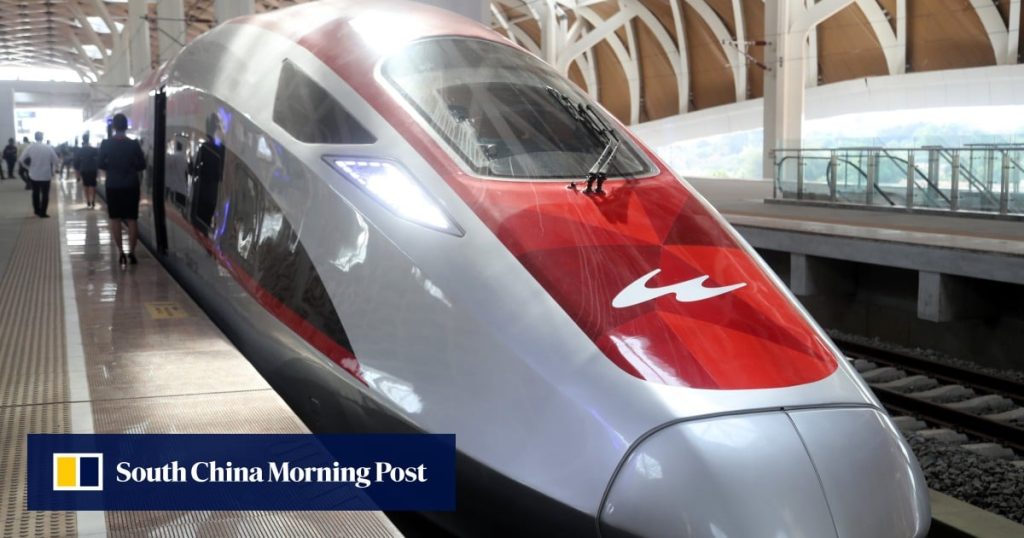Indonesia is pushing back against calls to tap the state budget to cover mounting debt from its China-backed high-speed railway, while Beijing has signalled it is open to repayment restructuring talks to ensure the line remains operational.
The dispute over who should shoulder the debt highlights deeper concerns about the project’s long-term viability, the role of Indonesia’s sovereign wealth fund and whether the current financing model risks setting a troubling precedent for future infrastructure deals, according to analysts.
The US$7.27 billion Jakarta–Bandung railway – known as “Whoosh” – has come under renewed scrutiny after a state-owned enterprise (SOE) involved in the project described the debt burden as a “ticking time bomb” in August.
Finance Minister Purbaya Yudhi Sadewa said that he would not pay the debt using the state budget and insisted that Danantara, the wealth fund which controls the operations and dividends of roughly 1,000 state firms in Indonesia, should be responsible for the debt instead.
“Whoosh is already managed by Danantara. Danantara has already taken over 80 trillion rupiah (US$4.8 billion) in dividends from state-owned enterprises. They should just manage it from there,” Purbaya told reporters on October 13.
“Using the state budget [to pay Whoosh’s debt] is a bit ridiculous. All the SOEs’ profits go to Danantara, but the burden comes our way. If Danantara takes the dividends from SOEs, they should take everything, including the debt burden.”


